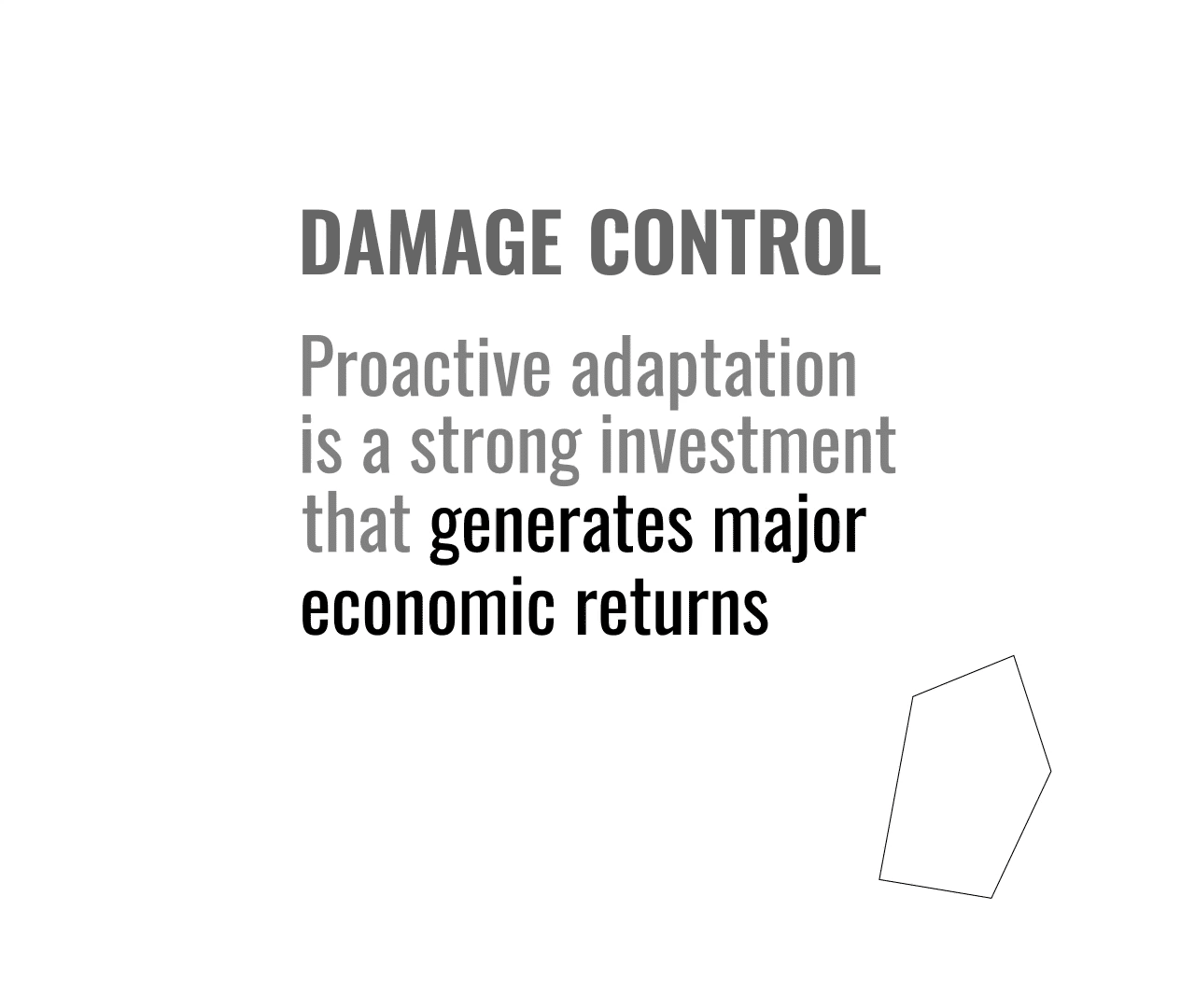Answering this question is the focus of our adaptation research stream.
Why is climate adaptation important?
Climate change resulting from the burning of fossil fuels is already affecting the economy and making life less affordable for people in Canada. Our research shows is costing people on average $720 per year in repairs after flooding, wildfires and other impacts. Without climate change adaptation measures, these costs will keep rising in the coming years as extreme weather events become more frequent and more destructive. An overheating climate is a growing threat to people’s health, homes, communities, jobs, and economic well-being.
How is climate change affecting infrastructure in Canada?
Because it was built for a less volatile climate, Canada’s infrastructure is under increasing strain, is deteriorating more quickly, and is less able to keep Canadians safe. Access to clean drinking water and safe housing remains a critical need for tens of thousands of people—including many Indigenous communities. Health, safety, and prosperity are eroding. Some estimates put the cost of bringing infrastructure up to an acceptable standard across the country at over $250 billion.
To meet our climate commitments, Canada will need to build a vast amount of new infrastructure, and retrofit existing stock, to enable the necessary emissions reductions. If this new infrastructure is designed wisely, it will be more resilient to future climate impacts and will save money in the long run.
How is climate change affecting the economy in Canada?
We estimate that the impacts of climate change are costing Canada billions. By 2025, Canada will see $25 billion in additional losses each year from warming, relative to a stable-climate scenario. Those damages could rise to $100 billion annually and wipe out half a million jobs by 2055. An overheating climate will make life less and less affordable for households as economic growth slows, governments raise taxes to pay for climate disasters, job losses increase, and goods become more expensive due to disrupted supply chains. The North of Canada will be particularly affected, as it is warming three times faster than the rest of Canada.
To prepare for the economic and human costs of an increasingly dangerous climate, Canada must prepare.
What are the benefits of climate change adaptation?
Canada does not need to be locked into a future of mounting cost, illness, and death resulting from climate change impacts.
In our report Damage Control: Reducing the Costs of Climate Impacts in Canada, we estimate that proactive adaptation can have major economy-wide benefits. For every $1 spent on adaptation measures today, $13-$15 will be returned in years ahead in direct and indirect savings and benefits. Adaptation can also cut the costs of many climate damages in half, and by 75% if those measures are accompanied by global emissions reductions in line with the Paris Agreement.

What is Canada doing to advance climate change adaptation?
Stronger national coordination on proactive adaptation is essential to protect Canadians from the challenge of an overheating climate.
Major investments are needed at all levels of governments to improve and protect the health and well-being of people living in Canada, and to ensure infrastructure–like buildings, houses and roads–will stand up to worsening risks.
Canada’s National Adaptation Strategy, released in June 2023, is a strong tool to address the biggest climate risks facing the country. Ensuring it delivers the results needed for climate change adaptation, however, will take significant new funding, sustained focus and coordinated action by governments across the country.
For more information on adapting to climate change in Canada, read below our various publications on the subject.

